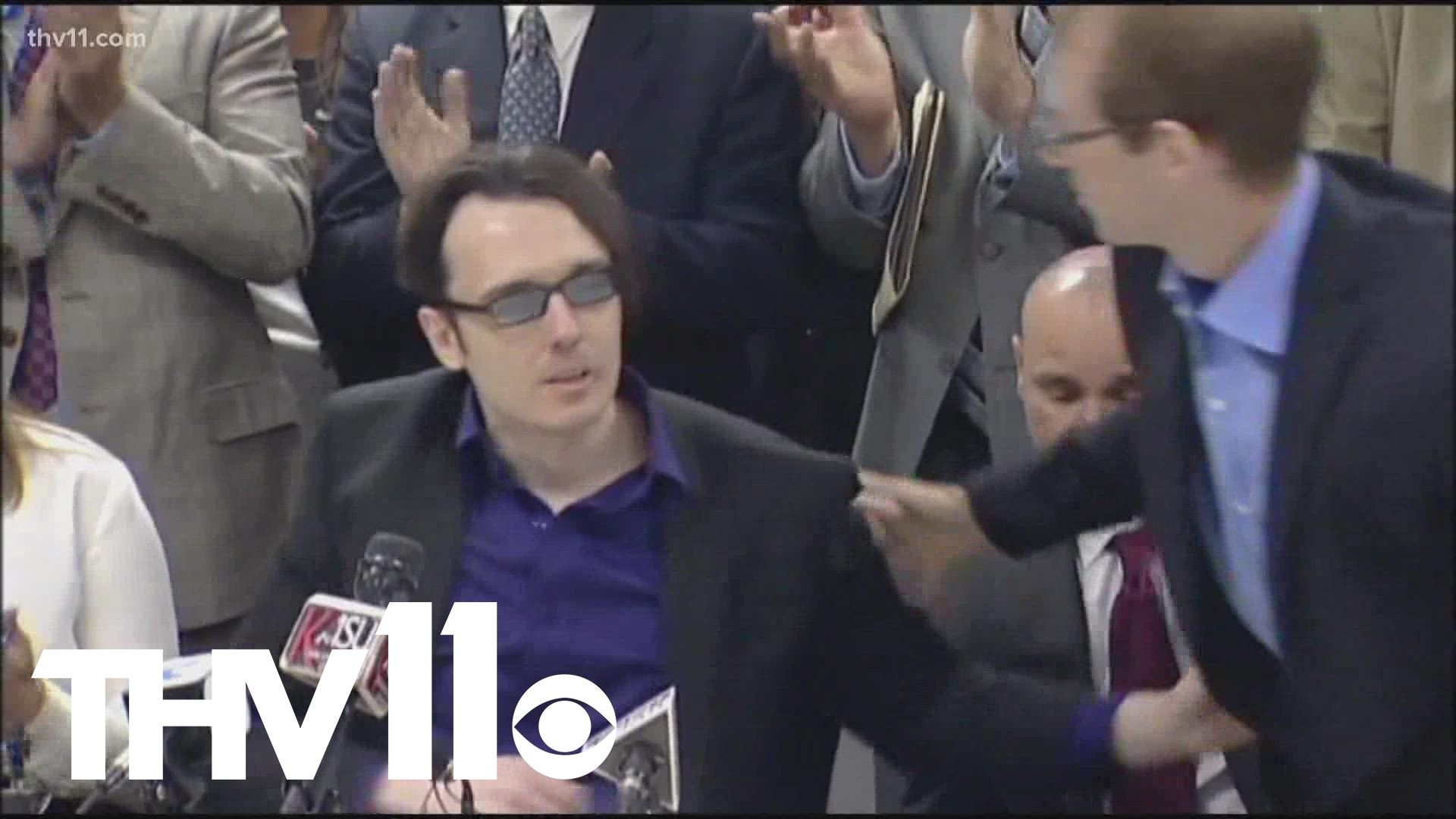LITTLE ROCK, Arkansas — The West Memphis Three have been fighting back after a judge denied their petition to test new DNA evidence just over two weeks ago.
Damien Echols tweeted that under the law for a process called 'Habeas Corpus' he is within his rights to file for further DNA testing of evidence from the case.
He has once again been in the national spotlight with countless people from around the country that have offered their help.
"Doesn't anyone want to be a hero here? The state can test the evidence whenever they want and they're just not doing it," said Gillian Pensavalle, Echols' friend and the creator of the True Crime Obsessed podcast.
On June 23, the West Memphis Three were in court to petition for newly discovered evidence to be tested for DNA.
Judge Tonya Alexander denied the petition, because she said that a Habeas Corpus petition cannot be filed unless you're being held under the state's custody-- which Echols is not.
But people have said that ruling was incorrect and that under Arkansas law Echols did have the right to file this case.
"Damien's DNA petition should have been granted," said Bob Ruff, creator of Truth and Justice podcast.
Ruff mentioned that one of his listeners researched the law and discovered an additional clause. It said that a convict is able to file a Habeas petition if they allege "actual innocence".
"The fact that he's not in prison should not have been a requirement for Habeas according to Arkansas law," said Ruff.
When we reached out Lonnie Soury, a member of Echols' defense team on the phone, he mentioned that they are in the process of appealing the judge's decision.
"We certainly believe we have every right legally, morally and ethically to have the right to test the DNA," said Soury.
We also reached out to the prosecuting attorney, but have not heard back.

